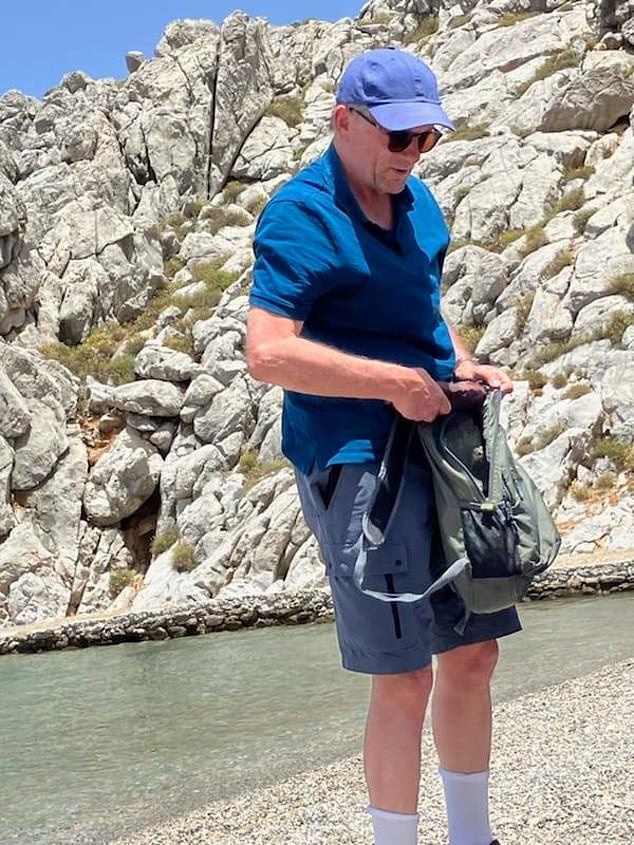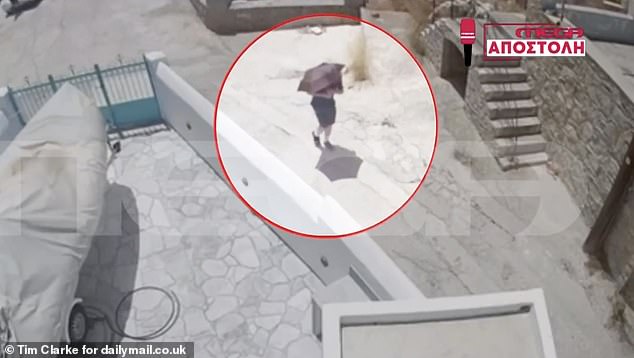Heat stroke can strike within minutes, clot the blood, cause the brain to swell and can be fatal at any age, says Dr MARTIN SCURR. After the tragic death of Dr. Mosley, everyone should know the signs – and how to protect yourself
The tragic death of my friend and colleague Dr. Michael Mosley has highlighted how careful we all need to be about the risk of heat stroke – and especially the dangers we can face when we are outside our usual environment.
Heatstroke occurs when the body is unable to determine what nature has determined to be the best body temperature for our vital systems to function normally. It is potentially fatal to people of all ages and conditions.
During heatwaves in Britain it is not uncommon to hear of the deaths of the elderly or sick who are housebound and unable to cool themselves adequately. But we also often hear of young army recruits succumbing to heatstroke during training exercises.
It can strike quickly and be fatal in a desperately short time, it pains me to say.
Dr. Michael Mosley, 67, was found dead on Sunday morning after disappearing while walking in Greece on Wednesday

Dr. Mosley succumbed to the heat on Symi Island – despite taking sensible precautions such as carrying a bottle of water and an umbrella for shade
With heat stroke, the body temperature rises above the normal range of 36ºC to 37.5ºC. It is due to the failure of the body’s cooling mechanisms and is not the same as fever, which is caused by, for example, inflammation due to an infection.
During an infection, messages are sent by inflammatory molecules to the hypothalamus – the area of the brain that regulates temperature (heat is the body’s way of killing the pathogen causing the infection).
When the body temperature rises above 40.5 degrees Celsius and there is no febrile illness, it is called hyperthermia or heat stroke.
Our body heat is the result of internal metabolic processes – including digestion, muscle function and even brain function, which in themselves use a lot of energy – and the effect of the heat around us.
Our way of cooling is sweating, where the water on the skin evaporates and the temperature drops.
However, this fail-safe is not effective if it is very humid because the sweat does not evaporate as effectively.
As the body temperature gets higher and higher, the central nervous system no longer functions properly.
As a result, fluid can build up in the lungs, making it difficult to breathe and get enough oxygen. A lack of oxygen – but also the heat itself – can damage the heart muscle and the heart’s electrical supply can fail, causing an abnormal heart rhythm.
Seizures are common and caused by swelling of the brain, along with a number of possible effects on the entire nervous system (such as poor nerve function, which affects balance and muscle coordination, weakness and numbness in the feet and legs).
Overheating also leads to kidney damage, liver damage and widespread blood clotting throughout the body.
Essentially, heat stroke causes total systemic collapse, with survivors at risk of long-term disability.
It is usually caused in young, healthy people by, often unwisely, exercising in conditions with high temperatures and humidity.
But generally speaking, classic heatstroke affects people with an underlying medical condition that impairs their ability to cool down or makes them unable to escape the warm environment.
Risk factors include cardiovascular disease, neurological disorders, older age or even unwise alcohol consumption.
Those most likely to be affected are over 70 years of age – although we have all heard of small children left in cars in hot weather who have also died of heatstroke.
Dr. Michael Mosley was aware that it was going to be very hot. He took the precaution of carrying an umbrella to protect himself from the radiant heat of the sun and also carried a bottle of water. But the effort it took him to walk back to his residence may have been underestimated.

The death of the beloved TV doctor, pictured in recently released CCTV footage from his final trip, shocked the country and highlighted the need to know what to do if heat stroke occurred.
Initially, those affected will feel weak and shaky and at some point gradually exhausted and confused. The time between realizing that all was not well and the confusion and disorientation can be very short, possibly only a few minutes, with no time for understanding. the predicament you find yourself in before things get desperately serious.
In such a condition you may collapse or fall, causing head injuries or other consequences.
In hot and humid conditions, none of us – regardless of our age or health – can afford to take the best possible precautions to prevent this.
I am so incredibly sad that this message follows the loss of our beloved Doctor Michael Mosley.
